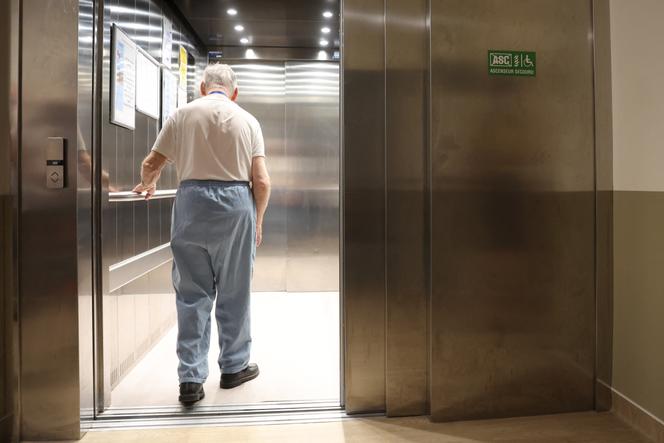


An emergency call button in a hopelessly silent elevator. An alarm unable to warn security services. A remote assistance bracelet ineffective when a dependent person falls. Are such incidents likely to increase with the imminent closures of 2G and 3G mobile networks in France?
Orange will be the first operator to switch off 2G by the end of 2025. SFR and Bouygues Telecom will follow a year later. In 2028 and 2029, all three operators will then switch off their 3G networks. Free Mobile will also be affected, as Xavier Niel's company has been using Orange's 2G since its creation in 2012. (Niel is an individual shareholder in the Le Monde Group.)
Despite the rollout of 4G and 5G, millions of pieces of equipment are still running on previous technologies. The French federations for teleassistance (Afrata), elevators (FAS), electrical solutions for the building industry (Ignes) and telesecurity (GPMSE) estimate that 7.8 million devices are connected on 2G and 3G, of which 4 million on 2G. "This reality has not been taken into account by operators," lamented Brice Brandenburg, Ignes' public affairs manager.
Orange had warned in January 2022 that it would discontinue 2G services four years from then. However, professionals in the alarm, elevator and remote assistance industries say this is too short a timeframe to migrate to 4G and 5G technologies. They believe that, considering the time needed for equipment development, certification, establishing production lines, and installation, they should have received warnings six or seven years prior to the shutdown date.
"All manufacturers are in favor of this technological transition, but they want to have the time to implement it with future-proof technologies, under conditions that guarantee continuity of service and the continued safety of users," insisted Alain Béal, vice president of GPMSE. Even if the project is carried out at full speed, this federation estimates that 700,000 remote surveillance systems out of a total installed base of 2.1 million may not be updated in time.
The cost of this technological transition is not entirely foreign to the anger of these professionals. They estimate it will cost several hundred million euros. For alarms alone, this could amount to 70 million. A bill that will end up on the table of building owners, notably the major social landlords. "The cost is not yet known and has not been provisioned for," said a worried Nicolas Blanchard, the head of engineering at CDC Habitat, a subsidiary of Caisse des Dépôts which manages 560,000 housing units in France.
You have 40.94% of this article left to read. The rest is for subscribers only.
